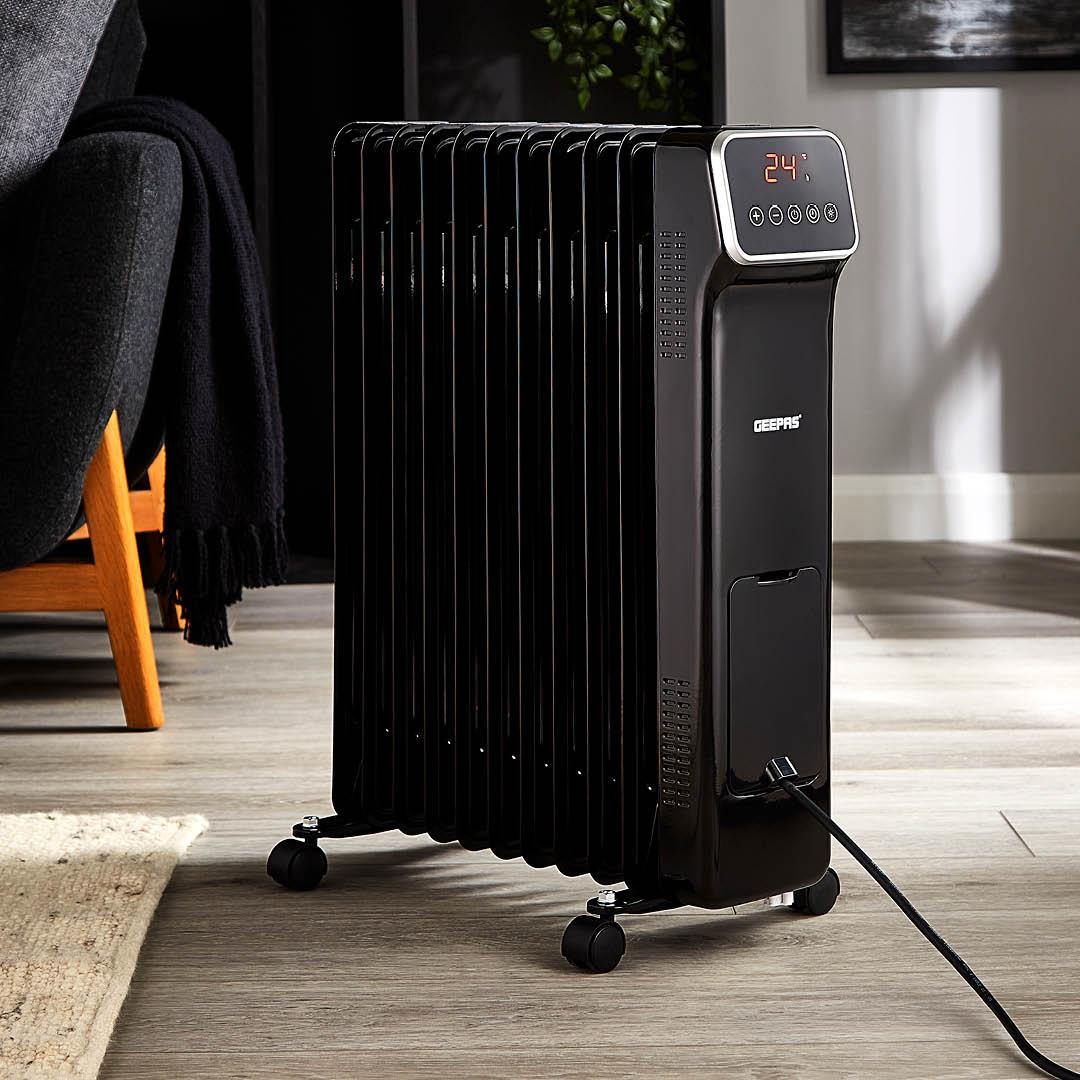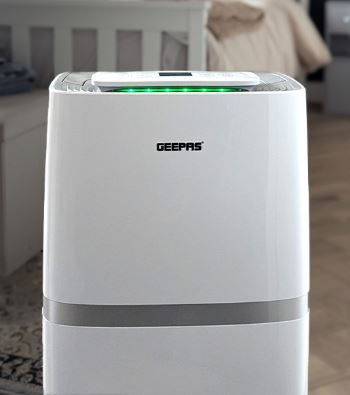As energy prices rise, many households are looking for cost-effective ways to stay warm during the colder months. Electric heaters offer a convenient heating solution, but not all are created equal when it comes to energy efficiency and operating costs. In this guide, we'll explore the cheapest electric heaters to run, how to calculate their running costs, and tips to maximize energy savings.
Types Of Electric Heaters
Electric heaters come in various types, each with unique features and energy consumption levels. Here's a breakdown of the most common ones:
How They Work: Oil inside the radiator is heated, and the heat radiates into the room. The oil retains heat even after the heater is turned off.
Energy Efficiency: These heaters are highly energy-efficient because they continue to emit heat without consuming additional electricity.
Best For: Medium to large rooms where you want consistent, long-lasting heat.
How They Work: Air passes over a heating element and is circulated throughout the room.
Energy Efficiency: They heat up quickly but stop warming once turned off, making them less efficient for prolonged use.
Best For: Quickly warming smaller spaces.
3. Fan Heaters
How They Work: A fan blows air over a heating element to quickly distribute warmth.
Energy Efficiency: High energy usage due to rapid heat generation; best for short bursts of heating.
Best For: Immediate warmth in small spaces.
4. Panel Heaters
How They Work: Heat a panel, which radiates warmth into the room.
Energy Efficiency: Typically low energy consumption, especially if equipped with a thermostat.
Best For: Wall-mounted solutions in small spaces.
5. Infrared Heaters
How They Work: Emit infrared rays to directly heat people and objects rather than the air.
Energy Efficiency: Extremely efficient as no energy is wasted heating the air.
Best For: Spot heating or outdoor use.
What Makes A Heater Cheap To Run?
Several factors influence the running cost of an electric heater:
1. Wattage
- Lower wattage heaters use less electricity but may not provide sufficient warmth for larger spaces.
- Example: A 1000W heater consumes 1kWh of electricity, costing approximately £0.34 per hour (based on an average UK rate of £0.34 per kWh).
2. Efficiency
- The design and technology of a heater determine how much of the electricity is converted into usable heat. Oil-filled radiators and infrared heaters are among the most efficient.
3. Thermostat and Timer
- A thermostat ensures the heater operates only when needed, while a timer allows you to control its running hours, reducing waste.
4. Room Insulation
- Proper insulation helps retain heat, meaning your heater doesn't have to work as hard or as long.
Calculating Running Costs
To calculate the running cost of an electric heater:
1. Find the heater's wattage. Example: 1500W = 1.5kW.
2. Check your electricity rate. Example: £0.34 per kWh.
3. Multiply the wattage by the rate.
1.5kW x £0.34 = £0.52 per hour.
4. Estimate usage time. Example: 4 hours/day x £0.51 = £2.04/day.
Which Electric Heater Is The Cheapest To Run?
- Why? Their ability to retain heat makes them economical for prolonged use. With a thermostat, they automatically turn off when the desired temperature is reached.
- Running Cost: ~£0.17-£0.20 per hour for a 500W model.
2. Panel Heaters
- Why? Low wattage and precise controls mixed in with wifi and remote control operation make them extremely customisable.
- Running Cost: ~£0.25-£0.30 per hour for a 1000W model.
3. Convection Heaters
- Why? Cost-effective for quick heating in small to medium spaces.
- Running Cost: ~ £0.30 - £0.35 per hour for a 1500W model.
4. Infrared Heaters
- Why? They heat people and objects directly, minimizing energy waste. Ideal for targeted heating.
- Running Cost: ~£0.15-£0.20 per hour for a 500W model.
Tips To Save Money On Electric Heating
1. Use Heaters In Insulated Rooms: Prevent heat loss by closing doors, windows, and using draft excluders.
2. Choose The Right Heater For Your Space: Match the heater type to the room size and purpose.
3. Use Smart Controls: Look for heaters with thermostats, timers, or smart home integration for precise control.
4. Limit Usage: Only heat the rooms you're using and turn off the heater when you leave.
5. Layer Up: Use blankets, rugs, and warm clothing to reduce reliance on electric heating.
Best Energy-Saving Heater Models
If you're looking to invest in a cost-effective electric heater, here are some excellent choices:
- Oil-Filled Radiators: Ideal for long-lasting, consistent heat.
- Infrared Heater: Perfect for spot heating and energy-efficient performance.
- Smart Panel Heater: Modern and programmable for precise heating needs.
Conclusion
When it comes to the cheapest electric heater to run, oil-filled radiators and infrared heaters are standout options. Their energy efficiency and ability to provide targeted or sustained warmth make them cost-effective solutions for any household.
Explore the Geepas Heating Range
Pairing your heater with good insulation and energy-saving habits will ensure a warm, comfortable home without inflating your energy bills. Choose wisely, stay cosy, and enjoy a budget-friendly winter season!




1 comment
Wendy Taylor
My name is Wendy Taylor, I’m from Los Angeles, i want to announce to you Viewer how Capital Crypto Recover help me to restore my Lost Bitcoin, I invested with a Crypto broker without proper research to know what I was hoarding my hard-earned money into scammers, i lost access to my crypto wallet or had your funds stolen? Don’t worry Capital Crypto Recover is here to help you recover your cryptocurrency with cutting-edge technical expertise, With years of experience in the crypto world, Capital Crypto Recover employs the best latest tools and ethical hacking techniques to help you recover lost assets, unlock hacked accounts, Whether it’s a forgotten password, Capital Crypto Recover has the expertise to help you get your crypto back. a security company service that has a 100% success rate in the recovery of crypto assets, i lost wallet and hacked accounts. I provided them the information they requested and they began their investigation. To my surprise, Capital Crypto Recover was able to trace and recover my crypto assets successfully within 24hours. Thank you for your service in helping me recover my $647,734 worth of crypto funds and I highly recommend their recovery services, they are reliable and a trusted company to any individuals looking to recover lost money. Contact email Capitalcryptorecover@zohomail.com OR Telegram Capitalcryptorecover Call/Text Number +1 (336)390-6684 his contact: Recoverycapitalfastservice.com His website: https://recovercapital.wixsite.com/capital-crypto-rec-1
My name is Wendy Taylor, I’m from Los Angeles, i want to announce to you Viewer how Capital Crypto Recover help me to restore my Lost Bitcoin, I invested with a Crypto broker without proper research to know what I was hoarding my hard-earned money into scammers, i lost access to my crypto wallet or had your funds stolen? Don’t worry Capital Crypto Recover is here to help you recover your cryptocurrency with cutting-edge technical expertise, With years of experience in the crypto world, Capital Crypto Recover employs the best latest tools and ethical hacking techniques to help you recover lost assets, unlock hacked accounts, Whether it’s a forgotten password, Capital Crypto Recover has the expertise to help you get your crypto back. a security company service that has a 100% success rate in the recovery of crypto assets, i lost wallet and hacked accounts. I provided them the information they requested and they began their investigation. To my surprise, Capital Crypto Recover was able to trace and recover my crypto assets successfully within 24hours. Thank you for your service in helping me recover my $647,734 worth of crypto funds and I highly recommend their recovery services, they are reliable and a trusted company to any individuals looking to recover lost money. Contact email Capitalcryptorecover@zohomail.com OR Telegram Capitalcryptorecover Call/Text Number +1 (336)390-6684 his contact: Recoverycapitalfastservice.com His website: https://recovercapital.wixsite.com/capital-crypto-rec-1